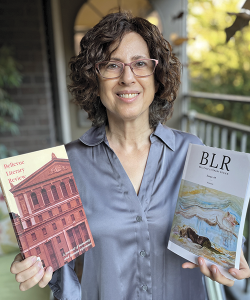Dare to Defamiliarize: In Praise of Fluidity

The acclaimed fiction writer, essayist, comic book writer, and screenwriter cautions against growing too rigid in your practice and suggests kicking down some doors and using writing as a multi-tool.
Jump to navigation Skip to content

The acclaimed fiction writer, essayist, comic book writer, and screenwriter cautions against growing too rigid in your practice and suggests kicking down some doors and using writing as a multi-tool.

The award-winning writer studies how the most powerful horror stories are grounded in “deeply human dilemma,” and how daring the ghoulish can bring us closer to our characters.

Founded in Singapore in 2015 and now based in New York City, Half Mystic Press publishes two books each year that engage with music—in theme or in spirit—as well as an annual journal.

The author of Winter Counts offers a masterclass in building suspense, whether your character is planning a heist or planting a garden.

The first lines of a dozen noteworthy books, including The Palace by Andrés Cerpa and The Flower Bearers by Rachel Eliza Griffiths.

Write a poem that reflects on the passing of time, a story that uses anonymity to build themes of disappearance and loneliness, or a personal essay about your relationship to a specific technology.

A study in iScience found a 43 percent drop over the last twenty years in the number of Americans who report reading for pleasure daily.

Bellevue Literary Review celebrates twenty-five years of platforming creative writing about health and the world of the body.

Flash fiction writer Patricia Q. Bidar highlights journals, including Ghost Parachute and Flash Frog, that embrace the shortest of short fiction and have published her work.

A writer of fiction and nonfiction forgets her laptop on a mini writing retreat and discovers new and productive paths through creativity without the constant pull of technology.